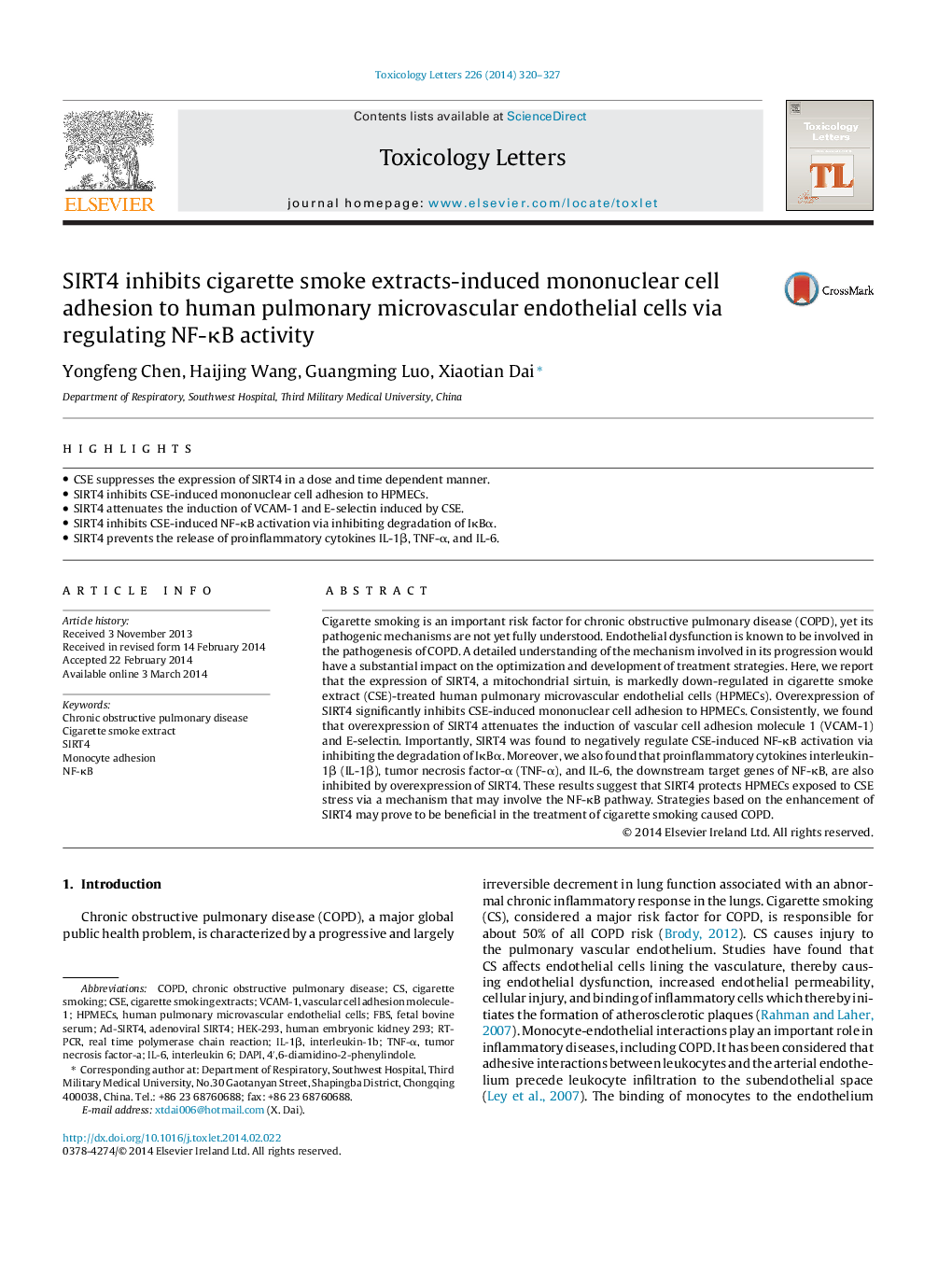| Article ID | Journal | Published Year | Pages | File Type |
|---|---|---|---|---|
| 5860323 | Toxicology Letters | 2014 | 8 Pages |
Abstract
Cigarette smoking is an important risk factor for chronic obstructive pulmonary disease (COPD), yet its pathogenic mechanisms are not yet fully understood. Endothelial dysfunction is known to be involved in the pathogenesis of COPD. A detailed understanding of the mechanism involved in its progression would have a substantial impact on the optimization and development of treatment strategies. Here, we report that the expression of SIRT4, a mitochondrial sirtuin, is markedly down-regulated in cigarette smoke extract (CSE)-treated human pulmonary microvascular endothelial cells (HPMECs). Overexpression of SIRT4 significantly inhibits CSE-induced mononuclear cell adhesion to HPMECs. Consistently, we found that overexpression of SIRT4 attenuates the induction of vascular cell adhesion molecule 1 (VCAM-1) and E-selectin. Importantly, SIRT4 was found to negatively regulate CSE-induced NF-κB activation via inhibiting the degradation of IκBα. Moreover, we also found that proinflammatory cytokines interleukin-1β (IL-1β), tumor necrosis factor-α (TNF-α), and IL-6, the downstream target genes of NF-κB, are also inhibited by overexpression of SIRT4. These results suggest that SIRT4 protects HPMECs exposed to CSE stress via a mechanism that may involve the NF-κB pathway. Strategies based on the enhancement of SIRT4 may prove to be beneficial in the treatment of cigarette smoking caused COPD.
Keywords
IL-1βSIRT4HEK-293VCAM-1NF-κBDAPICSERT-PCRFBSIL-64′,6-diamidino-2-phenylindoleinterleukin 6interleukin-1bCOPDChronic obstructive pulmonary diseasefetal bovine serumHuman pulmonary microvascular endothelial cellstumor necrosis factor-acigarette smoke extractTNF-αcigarette smokingvascular cell adhesion molecule-1Real time polymerase chain reactionMonocyte adhesionhuman embryonic kidney 293
Related Topics
Life Sciences
Environmental Science
Health, Toxicology and Mutagenesis
Authors
Yongfeng Chen, Haijing Wang, Guangming Luo, Xiaotian Dai,
